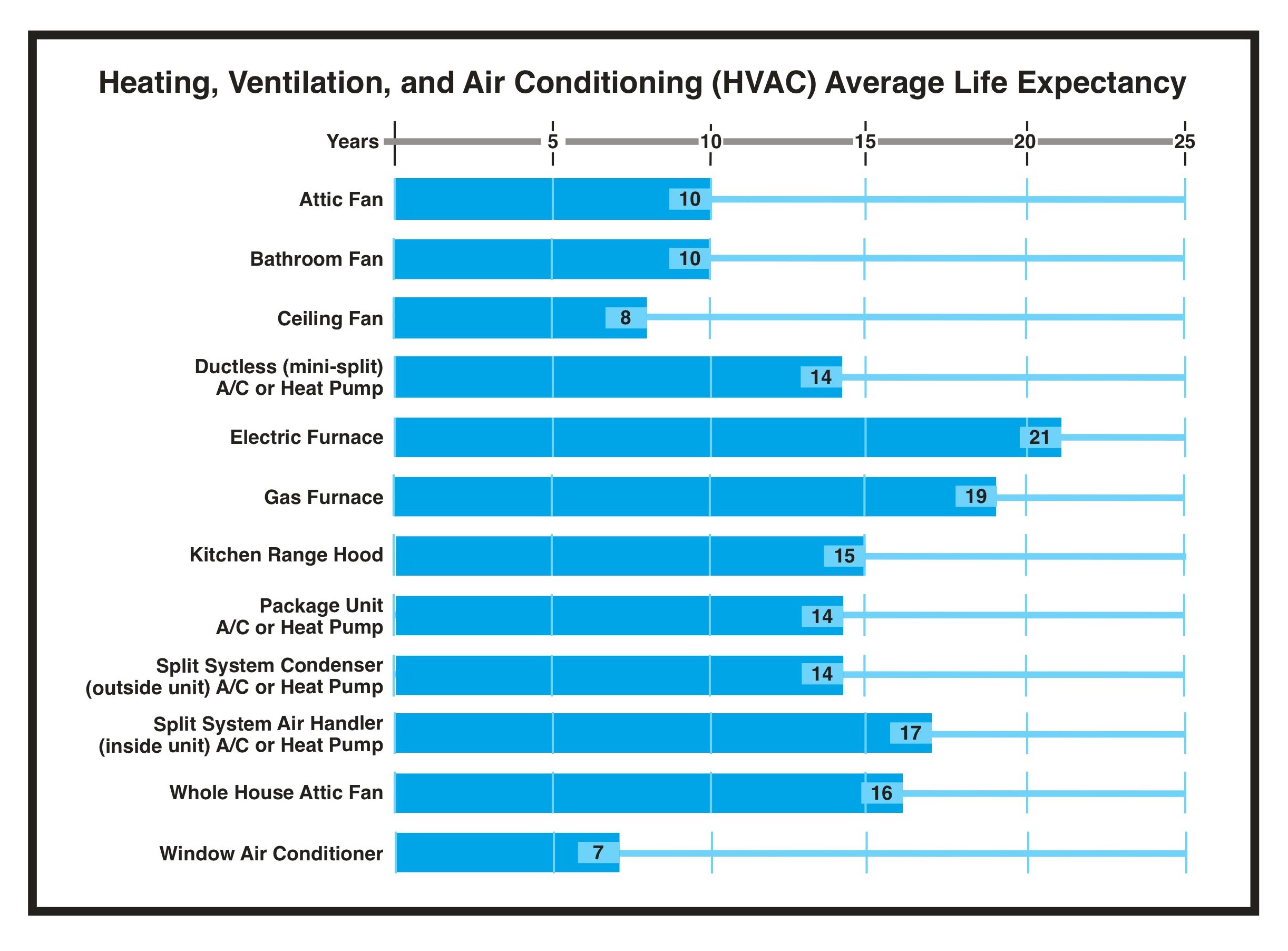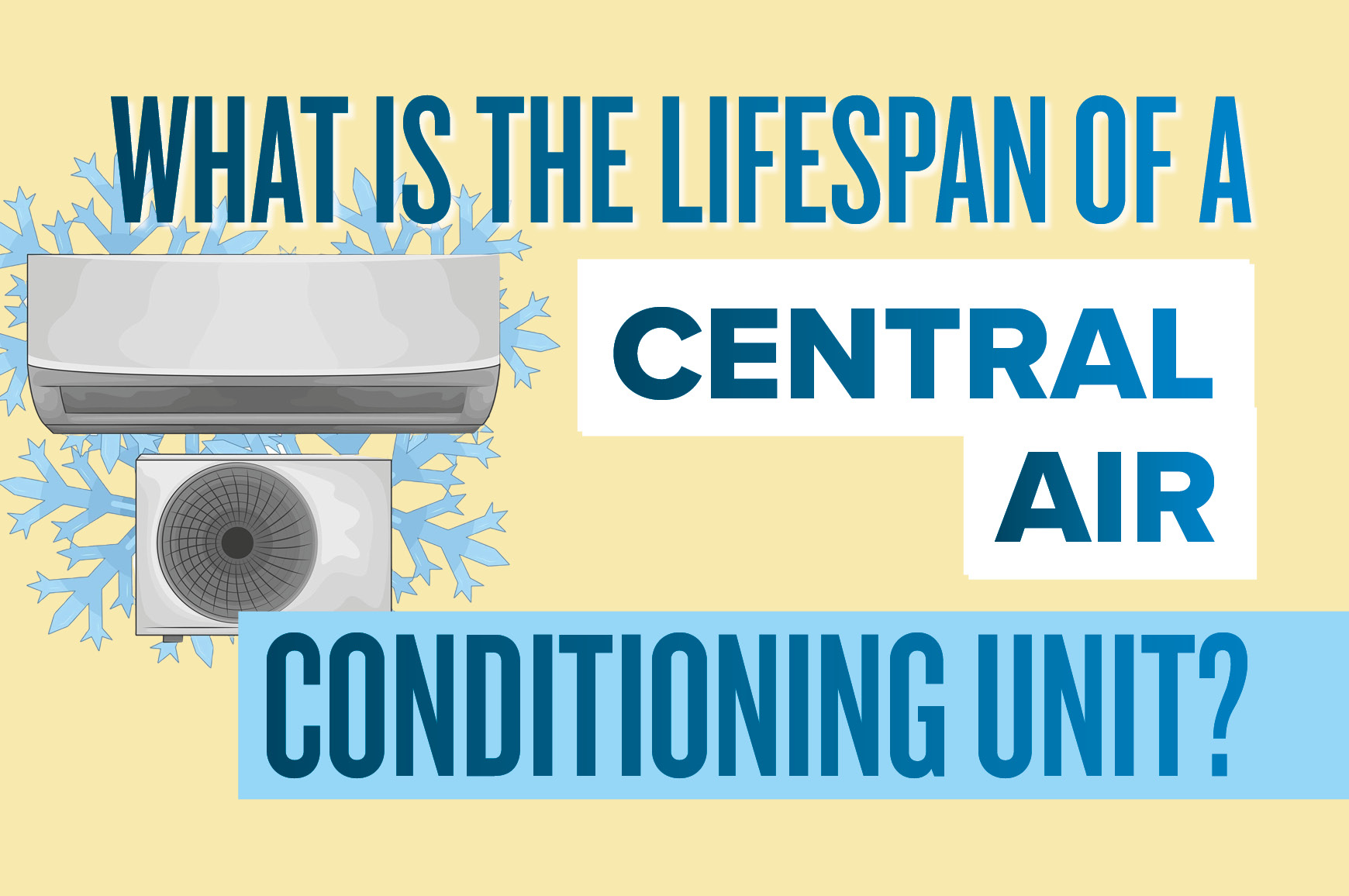Average Life Of An Air Conditioning Unit

One of the most crucial yet often overlooked aspects of home and business ownership is the lifespan of your air conditioning (AC) unit. Understanding its average lifespan, factors affecting it, and strategies for extending it can significantly impact your energy bills and overall comfort. This article will provide a comprehensive guide to AC unit lifespans, maintenance, and upgrades, catering to homeowners, businesses, smart home enthusiasts, and HVAC contractors alike.
Average Lifespan of an Air Conditioning Unit
Generally, a well-maintained air conditioning unit will last between 15 and 20 years. However, this is just an average, and several factors can cause it to deviate significantly. For example, a central AC system in a moderate climate with regular maintenance might easily reach 20 years, whereas a window unit in a harsh environment might only last 8-10 years. It's crucial to distinguish between different types of AC systems and understand how their lifespans can vary.
Here’s a breakdown of the average lifespan for different types of AC systems:
- Central Air Conditioners: 15-20 years
- Ductless Mini-Split Systems: 15-20 years
- Window Air Conditioners: 8-10 years
- Portable Air Conditioners: 5-10 years
These are just estimates, and proper maintenance, usage habits, and environmental factors play significant roles in determining the actual lifespan.
Factors Affecting AC Unit Lifespan
Several elements can either shorten or extend the life of your AC unit. Understanding these factors allows you to take proactive measures to maximize your investment.
1. Maintenance
Regular maintenance is paramount. Neglecting maintenance is the fastest way to reduce the lifespan of your AC unit. Key maintenance tasks include:
- Filter Replacement: Dirty air filters restrict airflow, causing the unit to work harder and overheat. Replace filters every 1-3 months, depending on usage and air quality.
- Coil Cleaning: Clean the evaporator and condenser coils annually. Dirty coils reduce efficiency and can lead to compressor failure.
- Professional Inspection: Schedule annual professional checkups. A qualified HVAC technician can identify and address potential issues before they become major problems.
- Drain Line Cleaning: Clear the condensate drain line to prevent clogs and water damage.
2. Usage
How often and intensely you use your AC unit directly impacts its lifespan. Running the AC constantly at full capacity, especially in extreme temperatures, puts significant strain on the components. Consider these usage habits:
- Temperature Settings: Avoid setting the thermostat drastically lower than the ambient temperature. A moderate temperature setting reduces stress on the system.
- Zoning: Use zoning systems or ductless mini-splits to cool only occupied areas, reducing overall usage.
- Smart Thermostats: Program smart thermostats to automatically adjust temperatures based on occupancy and time of day.
3. Climate
The climate in your region significantly affects AC unit lifespan. In hot, humid climates, AC units work harder and longer, leading to increased wear and tear. Coastal areas can also pose challenges due to salty air, which can corrode metal components. Inland regions with extreme temperature fluctuations may also shorten lifespan due to thermal stress.
4. Installation Quality
A poorly installed AC unit is destined for a shorter lifespan. Improper sizing, inadequate ductwork, or incorrect refrigerant levels can all lead to premature failure. Ensure that your AC unit is installed by a qualified and licensed HVAC contractor. Check reviews and credentials before hiring.
5. Unit Quality
The quality of the AC unit itself plays a vital role. Higher-quality units are built with more durable components and better engineering, resulting in longer lifespans. Look for Energy Star certified models, which meet strict energy efficiency guidelines set by the EPA. While they may cost more upfront, they often provide better performance and longevity.
Signs Your AC Unit Needs Replacing
Knowing when to repair versus replace your AC unit is crucial. Here are some telltale signs that it might be time for a replacement:
- Age: If your unit is 15 years or older, it’s likely nearing the end of its lifespan.
- Frequent Repairs: If you’re constantly calling for repairs, especially major ones, replacing the unit may be more cost-effective.
- Rising Energy Bills: A sudden increase in energy bills without a corresponding change in usage could indicate declining efficiency.
- Poor Cooling Performance: If the unit struggles to maintain a consistent temperature or takes a long time to cool, it might be failing.
- Strange Noises or Odors: Unusual sounds or smells coming from the unit could indicate serious mechanical problems.
- Refrigerant Leaks: Leaking refrigerant is a sign of significant damage and requires professional attention.
A useful rule of thumb: If the cost of repairs exceeds 50% of the replacement cost, it's generally more economical to replace the unit.
Extending the Lifespan of Your AC Unit
Here are some actionable steps you can take to prolong the life of your AC unit and maximize your investment:
- Regular Maintenance: As mentioned earlier, regular maintenance is crucial. Stick to a consistent maintenance schedule, including filter changes, coil cleaning, and professional inspections.
- Proper Usage: Use your AC unit wisely. Avoid extreme temperature settings and utilize zoning or smart thermostats to optimize cooling.
- Protect the Outdoor Unit: Keep the outdoor unit free from debris, vegetation, and direct sunlight. Trim bushes and trees around the unit to ensure proper airflow.
- Seal Air Leaks: Seal any air leaks in your home or business to prevent conditioned air from escaping. This reduces the workload on the AC unit.
- Consider a Whole-House Fan: A whole-house fan can help cool your home in the evening and early morning, reducing the need for AC during milder times of the day.
- Upgrade to a Smart Thermostat: Smart thermostats offer advanced features such as programmable schedules, remote control, and energy usage monitoring. They can help you optimize your cooling strategy and save money.
Energy Efficiency and Cost Savings
Replacing an old, inefficient AC unit with a new, Energy Star certified model can lead to significant energy savings. According to the Energy Star program, replacing a unit that is more than 10 years old with a new, efficient model can reduce energy consumption by 20-40%. This translates to hundreds of dollars in savings per year.
Furthermore, many utility companies and government agencies offer rebates and incentives for upgrading to energy-efficient HVAC systems. Check with your local utility provider and the DSIRE (Database of State Incentives for Renewables & Efficiency) website to find available rebates and tax credits.
Here’s an example of potential ROI:
Let’s say you replace a 15-year-old AC unit with a new Energy Star model. The new unit costs $5,000, including installation. It reduces your energy consumption by 30%, saving you $300 per year. Over 15 years, this equates to $4,500 in savings. Factoring in potential rebates and tax credits, the actual cost of the new unit could be significantly lower, making it a worthwhile investment.
Integrating Smart HVAC Technology
Smart HVAC technology is revolutionizing the way we control and manage our heating and cooling systems. Smart thermostats, sensors, and zoning systems offer unprecedented levels of control, efficiency, and convenience.
- Smart Thermostats: Learn your habits and automatically adjust temperature settings to optimize comfort and energy savings.
- Smart Sensors: Monitor temperature and humidity in different zones, allowing for more precise cooling control.
- Smart Zoning Systems: Allow you to independently control the temperature in different rooms or zones, reducing energy waste.
These technologies can be integrated with other smart home devices, such as smart lighting and smart blinds, to create a fully automated and energy-efficient home environment. They also provide valuable data and insights into your energy consumption patterns, allowing you to make informed decisions about your HVAC usage.
Choosing the Right HVAC Contractor
Selecting the right HVAC contractor is essential for ensuring a successful installation or replacement. Look for a contractor who is licensed, insured, and experienced. Get multiple quotes and compare prices, services, and warranties. Ask for references and check online reviews.
A good HVAC contractor will:
- Conduct a thorough assessment of your home or business to determine the appropriate size and type of AC unit.
- Provide a detailed written proposal outlining the scope of work, materials, and costs.
- Obtain all necessary permits and comply with local building codes.
- Properly install the AC unit and ensure that it is functioning correctly.
- Provide ongoing maintenance and repair services.
Conclusion
The lifespan of your air conditioning unit is a critical factor in your overall energy costs and comfort. By understanding the factors that affect AC unit lifespan, practicing regular maintenance, and investing in energy-efficient technologies, you can extend the life of your unit, save money on energy bills, and create a more comfortable living or working environment. Whether you’re a homeowner looking to reduce your energy footprint, a business upgrading to a more sustainable system, a smart home enthusiast integrating advanced technologies, or an HVAC contractor selling energy-efficient solutions, understanding AC unit lifespans is essential for making informed decisions and achieving your goals.
Remember to consult with a qualified HVAC professional for personalized advice and recommendations. They can help you assess your specific needs, choose the right AC unit, and develop a maintenance plan that maximizes its lifespan and efficiency.










